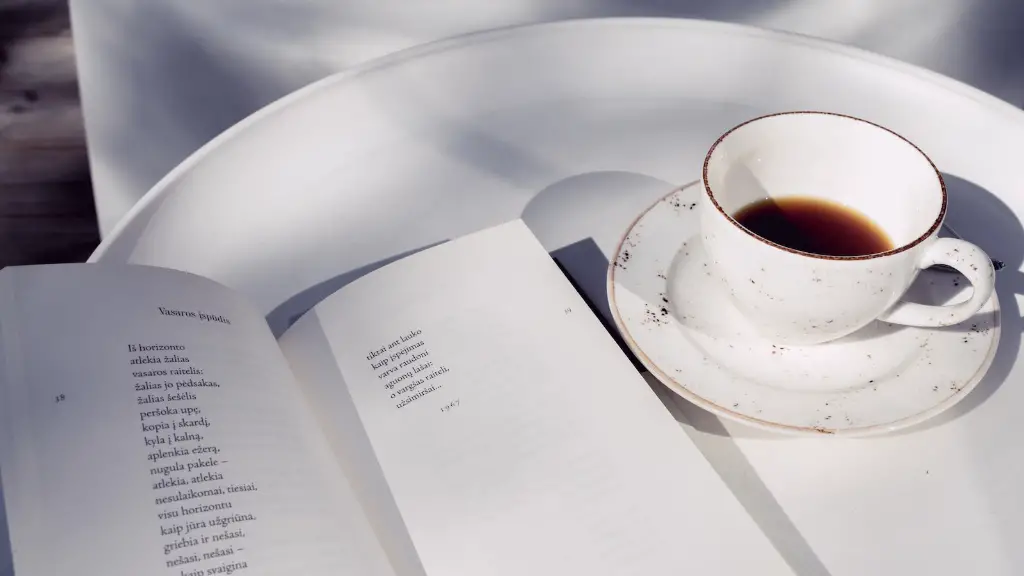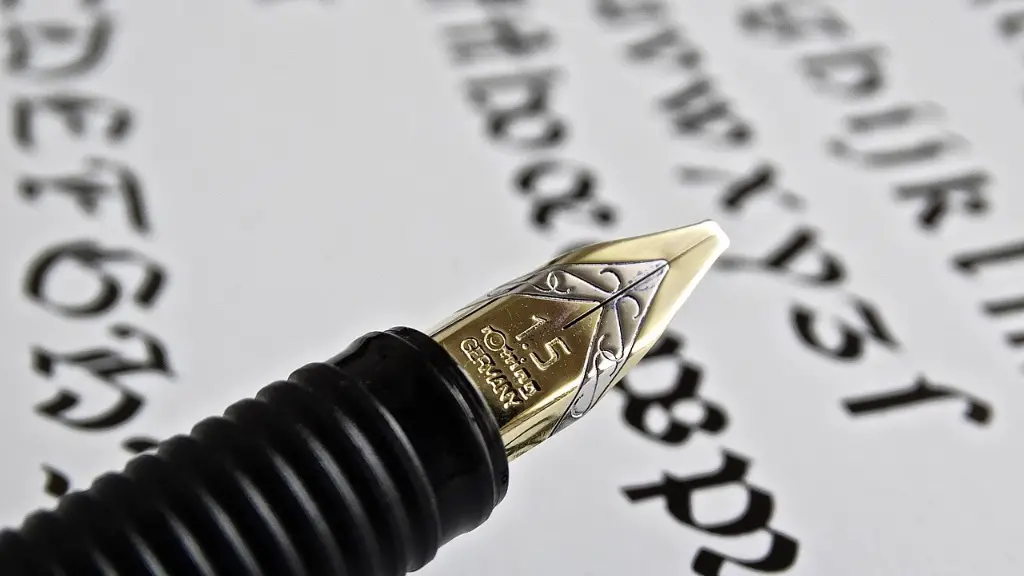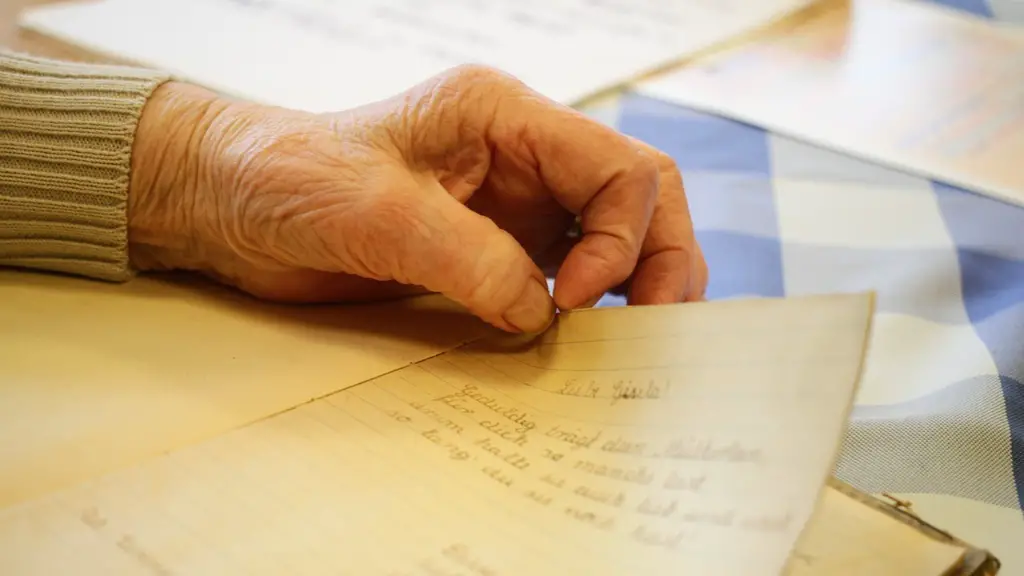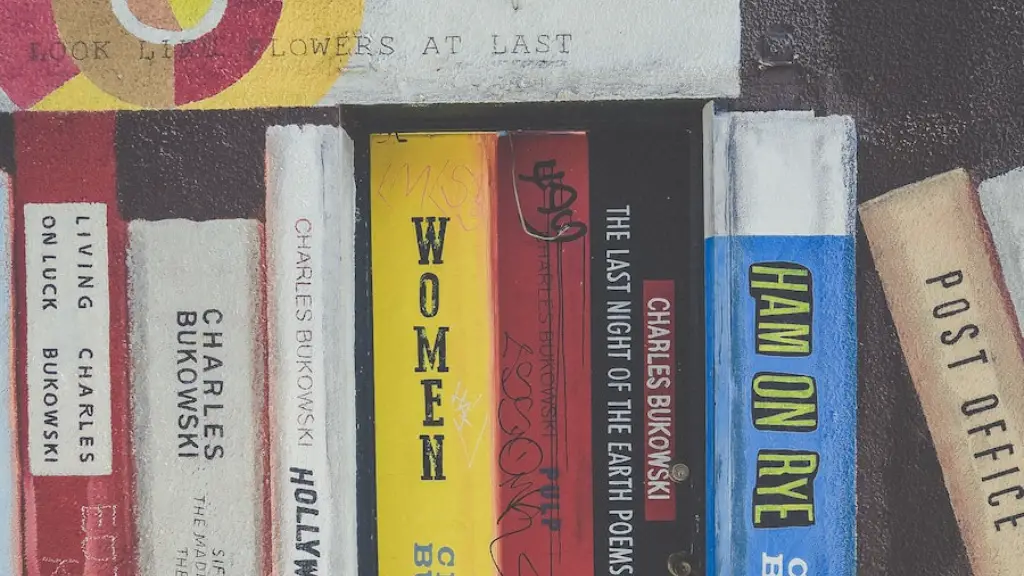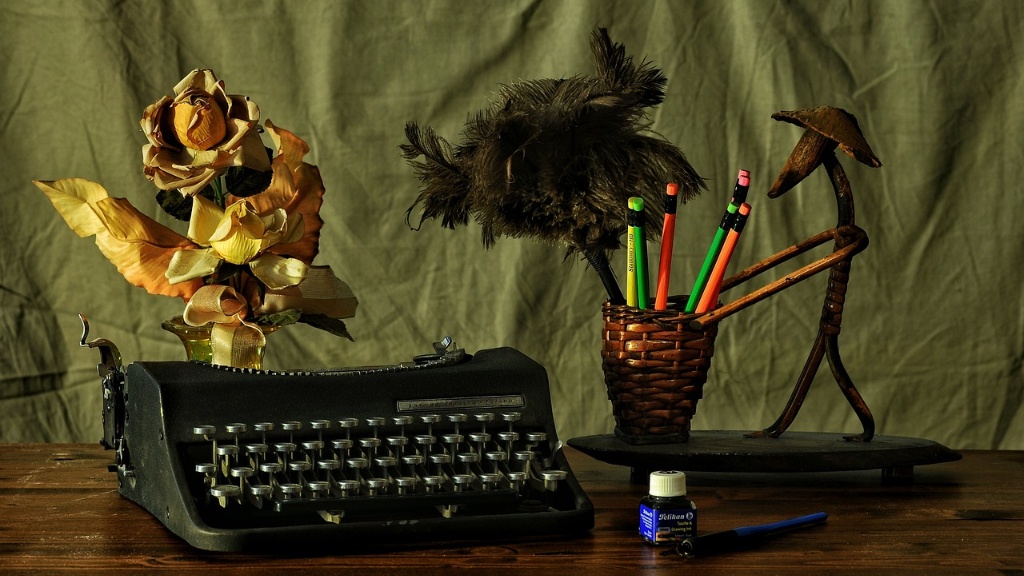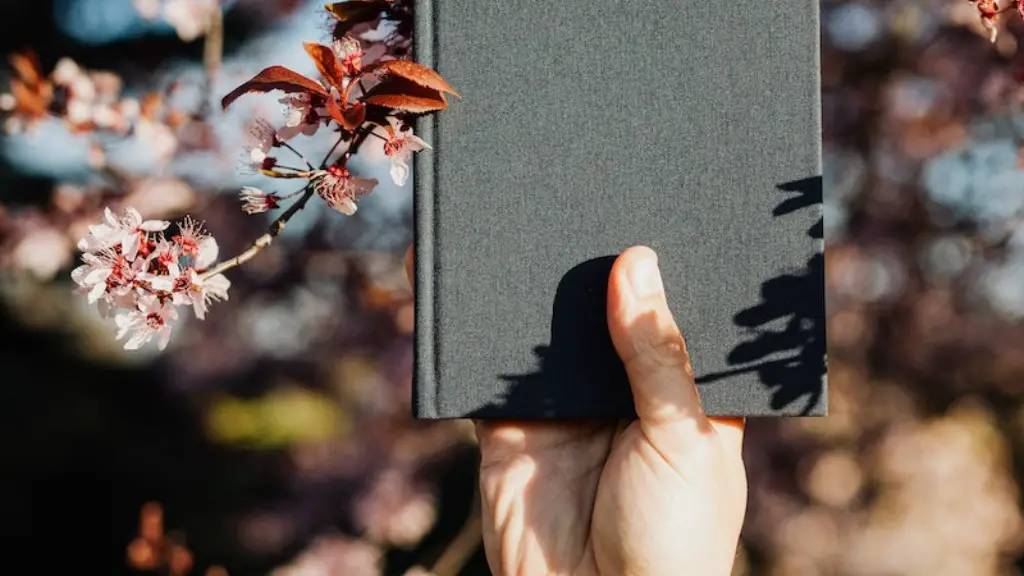When considering whether music is indeed a form of poetry, it is hard to ignore the commonalities between them. Both share the same basic form of telling a story, each has its own unique structure, and creating something driven by one’s own emotions is a skill both use. To make a compelling argument, it is necessary to look deeper into the individual elements of music and poetry to truly examine the similarities.
One of the most significant characteristics of both music and poetry is their ability to convey emotion. Each has the ability to evoke feelings and add a layer of understanding to a subject that simply cannot be attained via words alone. For example, a heart-wrenching poem can take on a new level of meaning when set to music, while a powerful song can be enhanced by the beauty of its lyrics. In this way, both forms of art combine to create a strong emotional impact.
Another commonality between music and poetry is their reliance on structure. In poetry, it is the use of rhyme, meter, and other devices to give the poem form and coherence. For music, it is the use of tempo and chord progressions to create an enjoyable, or sometimes jarring, experience for the listener. While the structure of each is unique, both achieve a similar goal — to create something that is unique and powerful.
If we look deeper still, it becomes apparent that certain ideas, images, and sounds are often repeated in both music and poetry. This is true in all forms of art, but even more so when considering music and poetry. For example, the use of metaphors and similes to convey a greater meaning; the use of alliteration to create a sense of rhythm and flow; and the incorporation of vivid imagery and descriptions are employed in both music and poetry. This ability to create a vivid, shared experience further points to the artistic similarities between the two art forms.
The use of language is also a major component of both music and poetry. In music, lyrics are used to communicate ideas and emotions. In a similar way, a poet uses words to craft a story or evoke images. Although the languages used are not the same, both rely on the use of the language to create a powerful and memorable experience.
Ultimately, the debate of whether music is a form of poetry is hard to definitively answer. Both share many of the same characteristics, and can be used to create a shared, emotional experience. But, what is perhaps most striking about the debate is the power of each individual art form — music and poetry can be combined to create an experience far greater than the sum of their parts.
Symbiosis between Music and Poetry
The creative interaction between music and poetry can create a hit song, a best-selling book, or any number of other influential works of art. From the most commercial top 40 to underground lyrical gems, there exists a symbiotic relationship between the two forms which, when combined, can create something extraordinary.
At the same time, many lyricists and poets also use music as means of exploration and self-expression. And while it is often unclear as to whether they are writing in the style of music or in the lyrical style of poetry, their works are nonetheless an important bridge between the two forms. By combining music and poetry in unique ways, these musicians and poets have created some of the most powerful works of the last five decades.
The combination of music and poetry also has a powerful impact on the listener. As the two forms combine to tell stories and evoke emotions, listeners often find themselves unable to resist the combination. This is because both music and poetry can provide a sense of comfort and understanding that is often beyond words. In this way, the two forms create a shared, emotional experience that resonates with the audience.
In conclusion, the debate surrounding music and poetry has endured for centuries. Despite their differences, the two forms of art share many of the same attributes, and when combined, can create an impact that is often much greater than the sum of their parts.
History of Music and Poetry
The use of music and poetry together can be traced back to ancient times. As early as Homer’s “The Odyssey,” the use of rhythm and verse combined to create a captivating stories and characters. Similarly, in the ancient cultures of the Near East and Egypt, the use of music and poetry was combined to create hymns, prayers and rituals.
In more recent centuries, the pairing of music and poetry continued to develop. During the Romantic era, poets such as Blake and Wordsworth wrote songs accompanied by music, creating an intimate, emotional experience. During the 20th century, there were many notable examples of music and poetry coming together to create powerful works that shaped the cultural landscape. From Bob Dylan and Leonard Cohen’s folk songs to Tupac Shakur and Notorious B.I.G.’s rap lyrics, music and poetry have existed side-by-side, often intertwining and enhancing the power of both forms.
Today, the popularity of both music and poetry has reached an all time high. With platforms such as social media making it easier to access and share them, the potential for the two to collide and create powerful works has never been greater. Whether it be through live performances or online communities, the combination of music and poetry is alive and well.
Clearly, music and poetry have been intertwined for centuries. From ancient rituals to current cultural movements, the two forms have continued to enhance each other to create some of the most powerful works of art.
How Music and Poetry can evoke Emotions
One of the reasons why music and poetry resonate so deeply is because of their ability to evoke emotions. By utilizing a plethora of tools such as alliteration, imagery, and metaphors, both forms of art can tap into our emotions, creating an intimate and often cathartic experience.
In music, this can be seen in everything from pop songs to punk rock. With words paired with a melody, the results can often be devastatingly beautiful. Whereas a poem, on its own, can be enchanting, adding a musical component can provide that much-needed emotional depth. Similarly, in a poem, adding in a musical component can often create a fresh, illuminating experience.
In essence, both music and poetry are highly effective in evoking a range of emotions. Whether it be joy, sorrow, anger, or any other emotion, music and poetry both possess the ability to evoke a powerful and memorable experience. Through a careful combination of the two, one can create an artistic masterpiece.
The Impact of Music and Poetry
Throughout the centuries, music and poetry have had an immense impact on both individuals and societies. Historically, these two forms of art have served as a means of connecting with the Divine, culture, and each other. From early rituals and hymns, to modern pop songs and protest poems, music and poetry have been used to express opinion, document history, and even form foundations for movements.
Today, the impact of music and poetry can be seen across the world. From protest poems that fuel social movements, to lyrics that speak to a generation, the creativity of music and poetry are a force to be reckoned with. In many ways, they serve as the voice of our collective consciousness, providing an outlet for us to express ourselves, document our history, and even share our hopes and dreams.
In conclusion, music and poetry have had a major impact on our societies and our individual lives. Through their use of language and emotion, these two art forms have become powerful tools for self-expression, connection and change.
Contradictions between Music and Poetry
Despite their similarities, there are also stark differences between music and poetry. Poetry typically utilizes a strict structure with a specific rhyme and meter, while music often allows for more creativity and freedom. Furthermore, while the use of language is essential to music, it can also be employed in its absence — tones, rhythms, and silence can speak volumes in many musical pieces.
In addition to formal distinctions, the experience of music and poetry are also quite different. When reading poetry, the mind often requires quiet contemplation, whereas music does not necessitate such stillness. Similarly, the use of language in poetry requires readers to engage with the written words whereas music often taps into the unconscious.
Ultimately, the differences between music and poetry go beyond formal distinctions. Although the two forms share many similarities, the experience of them is often quite different. In this way, music and poetry offer unique experiences, each possessing its own power and beauty.
Limitations of Music and Poetry
Although the combination of music and poetry can create powerful works of art, there are limits to the medium. Music and poetry often require considerable skill to master and often this limits the ability to create something meaningful. For instance, while a lyricist may be able to craft a song that speaks to a generation, often times this song will require a producer and collaborator to bring it to life. Similarly, while a poet can write a compelling sonnet, the struggle to find the right rhythm and meter can stifle their creative juices.
Furthermore, music and poetry, while not necessarily inaccessible, do require a certain level of dedication to understand and appreciate. To fully appreciate a piece, one needs to spend time both reading and listening. Similarly, to create something powerful and meaningful, one must dedicate the time and effort needed to perfect the craft. These limitations can often be seen as a double-edged sword, being both a blessing and a curse for the artist.
In conclusion, the combination of music and poetry can be incredibly powerful, however there are definite limits to this medium. From the need for dedication and skill to the complexity of the language, these limitations can often hinder or even prevent the creation of something meaningful.
